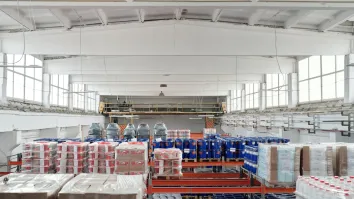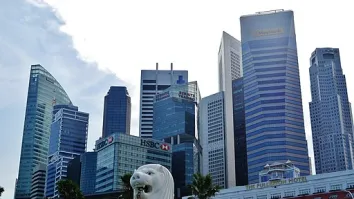
Why are Hong Kong property investors turning a blind eye to ESG elements?
Only 38% of investors said COVID-19 made them more interested in ESG-focused property investments.
In recent years, people worldwide have expanded the use of environmental, social and governance (ESG) criteria in every respect, from their daily life to business operations and formulating an investment strategy.
However, Knight Frank notes that not everyone understands what ESG is and its underlying purpose. Instead of focusing simply on financial performance, many investors believe the ESG performance of a company or asset also affects their long-term decision in making an investment.
Here’s more from Knight Frank:
In the real estate sector, there is a stronger focus on the ESG elements because of their close ties with financial and cost-saving incentives. The Global Real Estate Sustainability Benchmark (GRESB) set and assessed the ESG benchmarks for sustainable real estate assets to provide a set of standardised data for capital markets. The GRESB assessments show that there have been ongoing improvements in the results of the global real estate sector over the years.
In Hong Kong, many more developers are paying more attention than ever to ESG elements, from internal policies and governance to project planning, and from green financing to leasing, operations and facilities management. For example, New World Development issued its first green bond in Hong Kong worth US$310 million for its Greater Bay Area projects. Link REIT incorporated its progress on sustainability into the annual report as a core gauge of the organisation’s health. The REIT also took the lead in issuing some of Asia’s first green convertible bonds tied to eco-friendly improvements.
All of Swire Properties’ projects under development have achieved the highest green building certification ratings. Green buildings have played a crucial role in ESG in Hong Kong real estate, as currently over 90% of the electricity in Hong Kong is consumed by buildings, according to the Hong Kong Green Building Council.
Some forward-looking MNCs also drive the ESG agenda as this is an increasingly important part of their office leasing strategy, as well as their fitout decision making process. For example, Ernst & Young Hong Kong recently partnered with Sustainable Office Solutions, a new ESG start up, to reuse, repurpose and recycle their existing fitout.
Despite the strong efforts by some leading developers and occupiers, local investors in Hong Kong are generally not taking as much consideration of ESG elements as investors in other parts of the world are, not even under the COVID-19 pandemic. According to an attitude survey of Knight Frank’s Wealth Report 2021, 38% of investors in Hong Kong indicated that COVID-19 had made them more interested in ESGfocused property investments than they were 12 months earlier. In comparison, 75% of respondents in the United States indicated the same change under COVID-19, along with 73% in the Chinese mainland, 67% in Australia, 54% in the United Kingdom, 43% in Singapore and 36% in Japan. In addition, only 58% of Hong Kong investors thought that they had all the information they required to assess ESG-related investments, compared to a worldwide average level of 68%.
Regardless of huge potential benefits over the long term, Hong Kong investors have not found sufficient incentives in ESG-focused property investments and are lagging behind other parts of the world in attempting to understand ESG-focused property investment.



















 Advertise
Advertise






